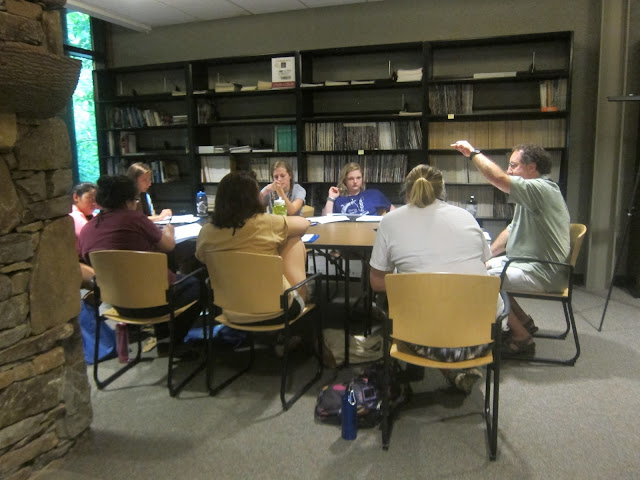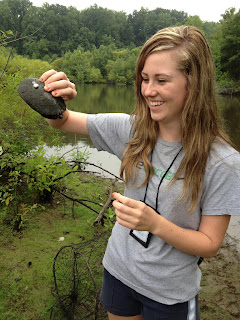Get a Backbone and Make a Difference
By: Katie Trischman
Fungi capture the rainforest-esque feel of the preserve
 After the past two days of warm rain, the Catawba nature preserve resembled a rainforest more than the cornfield that it once was. Certainly there were enough mosquitoes to be a rainforest. Despite the mud and parasites, one group braves the elements to monitor the health of the preserve's ecosystem.
After the past two days of warm rain, the Catawba nature preserve resembled a rainforest more than the cornfield that it once was. Certainly there were enough mosquitoes to be a rainforest. Despite the mud and parasites, one group braves the elements to monitor the health of the preserve's ecosystem.The Backbone for Conservation focus group is extremely hands-on and is involved with studying the vertebrates of the preserve. They have caught and tagged both turtles and birds (about only 5 species out of the 245 vertebrates on the preserve) all while being eaten alive by mosquitoes.
Bird netting, however, is not as glamorous as it sounds; it takes a lot of sitting around in the mud. After following Professor Joe Posten through the trails, the group sets up the thin net across a pathway that Professor Posten deems suitable. He usually listens for bird calls and tries to set up in an area where several birds seem to be living nearby. He then selects a bird species and plays a recording of its call to lure out the territorial bird.
However, a watched net never catches a bird, and so while we waited to net a bird we also collected the game trap cameras. Upon return, we were disappointed to be greeted by an empty net. Although we didn't catch a bird today, the group did catch a vibrant male cardinal and a tiny tufted titmouse earlier this week. They also planned to catch and band more turtles later that day, and so their spirit was not dampened.
Jack Dempster and Professor Posten prepare for the trek
Setting up the bird net
Now you see it, now you don't! The bird net is almost invisible against the forest backdrop.
The group members didn't seem to mind their failure either. Christina Donovan, one of the group members, seems happy to "hang with the mosquitoes" and slog through the mud. She chose the group for its hands-on nature and enjoys the feeling that she's actively doing something. The field work is excellent experience for anyone that wants to have a career in animal population study, as it often requires the capture, tagging, and monitoring of animal species.
When I looked at the faces of the members of the rest of the focus group after our hike, I could see the contentedness behind their exhaustion. The hard work this week didn't only pay off well for the environment, but spiritually as well.








Comments
Post a Comment